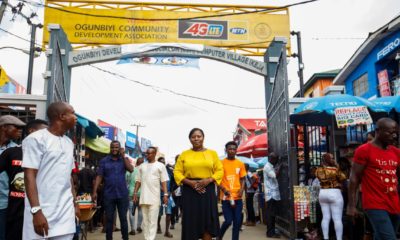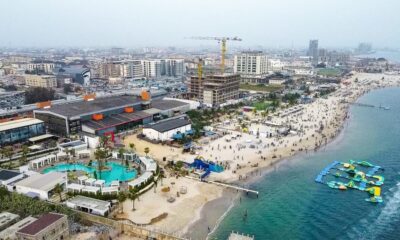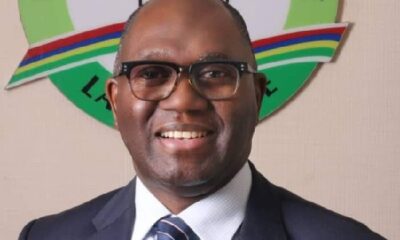Lagos state government has proposed N1.388 trillion budget for the year 2022. The proposed budget was presented to the House of Assembly on Wednesday.
While presenting the proposed budget, Governor Babajide Sanwo-Olu said the State would be spending N325 billion on vital infrastructure projects in key sectors to energise and expand the growth of the State’s economy.
The key areas of growth identified by the Governor include Works and Infrastructure, Waterfront Infrastructure Development, Agriculture, Transportation, Energy and Mineral Resources, Tourism, Entertainment and Creative Industry, Commerce and Industry, Wealth Creation and Employment.
The proposed budget, christened “Budget of Consolidation”, will be the last full-year fiscal plan of the State before the next general election.
About N823.4 billion, representing 59 per cent of the 2022 budget, is earmarked for capital expenditure. Recurrent expenditure, representing 41 per cent, is N565 billion, which includes personnel cost, overhead and debt services.
Of the total proposed expenditure, N1.135 trillion would accrue from Internally Generated Revenues (IGRs) and federal transfers, while deficit financing of N253 billion would be sourced from external and domestic loans, and bonds projected to be within the State’s fiscal sustainability parameters.
The State would be earmarking an aggregate of N137.64 billion, representing 9.92 per cent of the 2022 budget, for the funding of green investment in Environment, Social Protection, Housing and Community Amenities.
“This financial proposal is presented with a sense of duty and absolute commitment to the transformation of Lagos to a preferred global destination for residence, commerce, and investment. The budget projects to see a continuing but gradual recovery to growth in economic activity as the global economy cautiously recovers from the impact of the Coronavirus pandemic,” the governor said while presenting the budget to the house.
Meanwhile, the 1.388 trillion budgeted for 2022 is higher than the budget of the five other southwest states combined. For 2022, Ekiti State’s budget is 100.7 billion, Osun 129.7 billion, Ondo 191billion, Oyo 294 billion. Ogun’s budget for 2022 is not yet finalised, but going by their 2021 budget of 339 billion, the combined budget of the five South-West states then amount to 1.053 trillion. With this, Lagos state budget is higher than the five states budget with a difference of 335 billion.

 Forex3 weeks ago
Forex3 weeks ago


 Naira2 weeks ago
Naira2 weeks ago
 Billionaire Watch2 weeks ago
Billionaire Watch2 weeks ago






 Naira3 weeks ago
Naira3 weeks ago






 Naira2 weeks ago
Naira2 weeks ago


 Naira1 week ago
Naira1 week ago




 Naira4 weeks ago
Naira4 weeks ago






 Naira1 week ago
Naira1 week ago






















